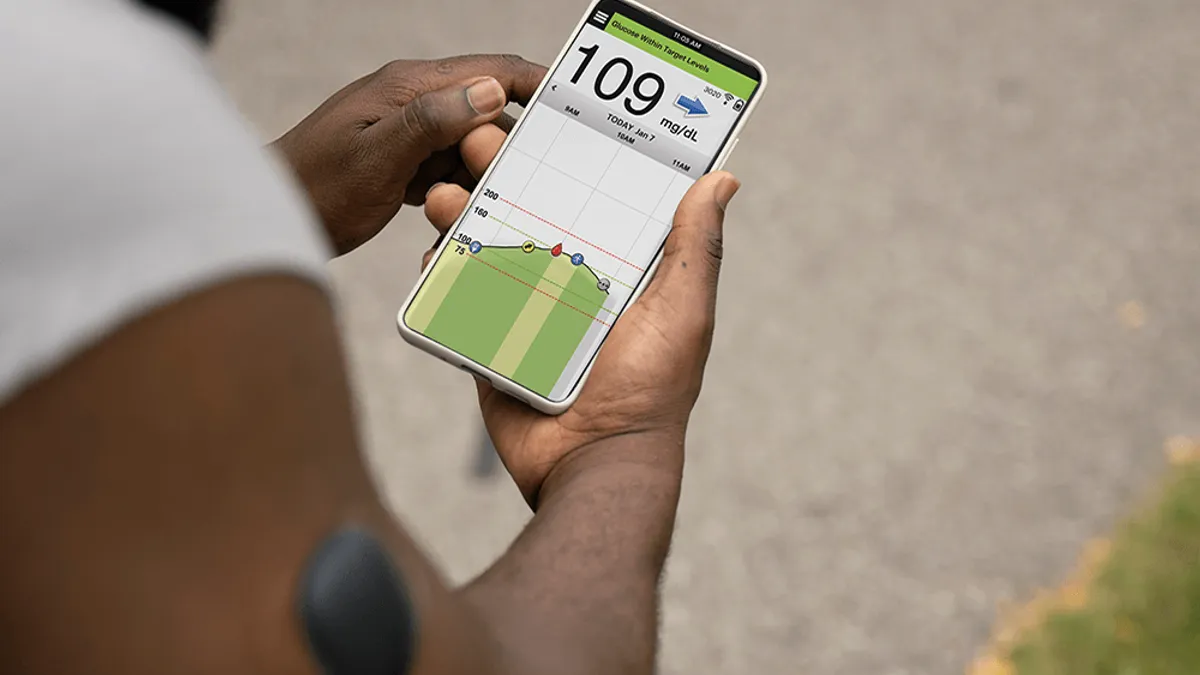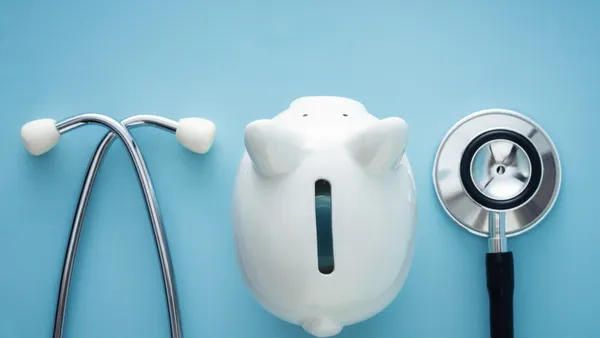Dive Brief:
- Senseonics expects the launch of its 365-day continuous glucose monitor (CGM) implant to help double its user base and sales in 2025, the company said Sunday.
- The company is a small player in the CGM market, with sales forecast to hit a range of from $22 million to $24 million this year, but it has identified the launch of a longer-lasting sensor that requires calibrating less frequently as a growth driver.
- Senseonics is in talks with insulin pump manufacturers about integrating its Eversense CGM with their devices but has yet to commit to a timeline for finalizing an agreement.
Dive Insight:
In 2024, Senseonics expects to more than double U.S. new patient starts and increase the global installed base by around 50%. The growth is built on the current 180-day version of Senseonics’ implantable Eversense CGM.
Senseoonics plans to launch a 365-day sensor in the U.S. in the fourth quarter.
Brian Hansen, president of CGM at Ascensia Diabetes Care, Senseonics’ commercial partner, said on an analyst call that “the duration tests out very well” in consumer research, but the reduction in calibration frequency is the most attractive feature for users. Eversense’s 180-day sensor can need calibrating twice a day, something Senseonics CEO Tim Goodnow said “has been a competitive disadvantage.” Users calibrate the 365-day sensor once a week.
By reducing the frequency of calibration, Senseonics forecasts it can increase its global base from 6,000 users in 2024 to 12,000 users in 2025. Growing the user base could help efforts to integrate the CGM with other devices, said Hansen, who was chief commercial officer at insulin pump manufacturer Tandem Diabetes Care before joining Ascensia.
“Ironically, I was the one sitting on the other side of Tim for the last eight years saying you need volume for me to dedicate those resources at Tandem,” Hansen said. “Now I'm on this side of the table begging for that integration opportunity.”
Hansen said Ascensia and Senseonics had “three or four really good meetings” with pump companies at the recent American Diabetes Association annual meeting. With the integrated CGM designation in place and the pipeline progressing, Hansen said the meetings had “gone better than they probably had before.” Still, the executives declined to provide a timeline for making an announcement.
Ascensia and Senseonics see opportnities for a standalone sensor. Hansen said around 60% of people with Type 1 diabetes, plus more than 90% of patients with Type 2, are not using pumps.
Eversense is competing with Abbott and Dexcom in the CGM space. An analyst asked Hansen if the goal is to dislodge the two incumbents or expand the market. Hansen said he wants to win share and expand the market, pointing to a collaboration with Mercy Health that identified 30,000 people without CGMs to show the unmet need.
“We're not going to grab 20, 30, 40% from Abbott or Dexcom anytime soon, but we know how large the market is today,” Hansen said. “If we can get some share of that, which today is obviously very miniscule for us, we build a very meaningful business. This business starts to really move into $300 to $400 million. For Ascensia ... it's very positive.”













